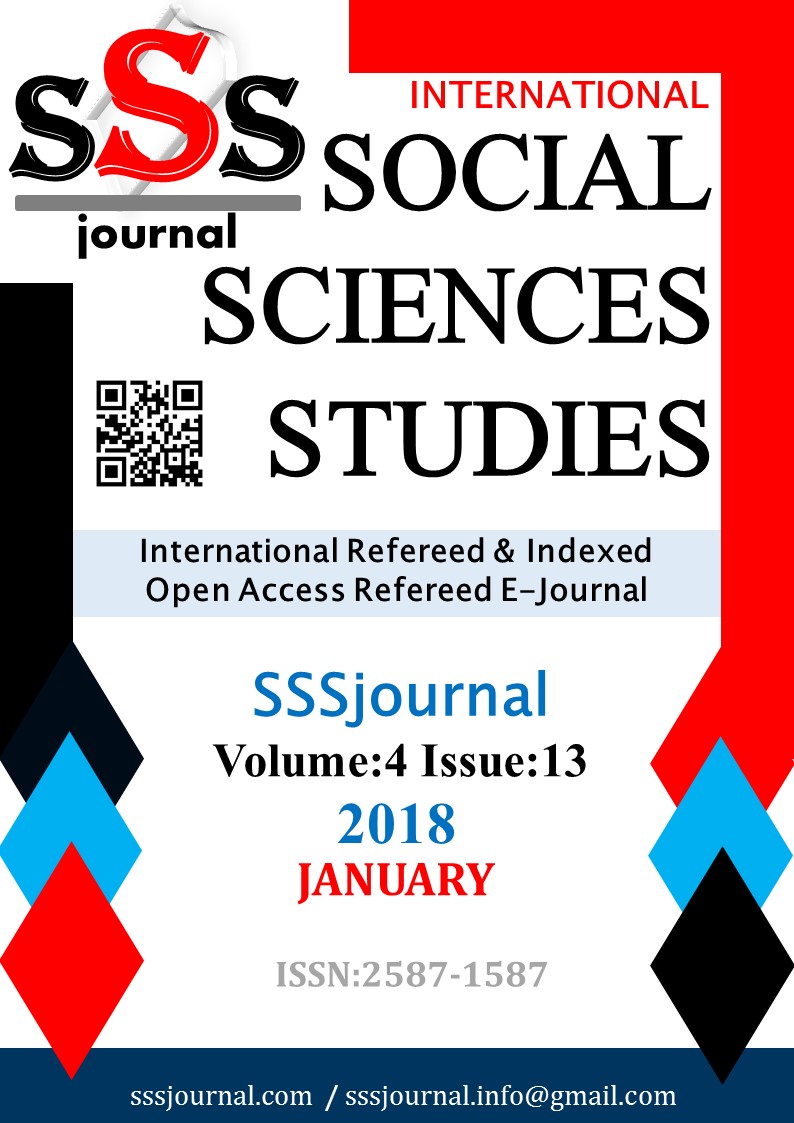Author :
Abstract
Birinci Dünya Savaşı tüm savaşları sona erdirecek bir savaş olarak idealleştirildi, ancak "Büyük Savaş" ın bizzat kendisine dönüştü. Diğer taraftan radikal, ideolojik ve politik gelişimler açısından Avrupa'da büyük bir heyecan yarattı. Edebiyat toplumu yansıttığından, Georgian ve Modernist söylemlerde açısından bu değişiklik de şiir yoluyla yeniden oluşturuldu. Savaş yanlısı Georgian şiiri savaşa karşı şövalyelik, kahramanlık ve romantik söylem fikrini ciddiyetle redderken, Modernist savaş karşıtı şiir ise, savaş yanlısı sahte kahramanlık düşüncelerine muhalif ve sosyal açıdan sorumlu bir görevi benimsedi. Savaş karşıtı şiirde, ülkesine düşen görev, kahramanca fedakârlık, şövalyelik, şan, şeref, adalet, Hıristiyan değerleri ve duygusallık gibi Georgian duygusal fikirler sorgulanıyordu. Georgian şairleri özellikle rüya dünyalarını kendilerine ait olmaktan ötürü severken, doğaya romantik bir dönüş için özlem duyuyorlardı. Georgian şairi Brooke şiirindeki çarpıcı doğasını ve vatanseverliğini yansıtmaktadır. Savaşı, vatanseverliğini göstermek için bir fırsat olarak görmektedir. Ancak, hendek şairlerinin modernist havası, savaş yanlısı propagandanın hayal kırıklığına karşı yeni bir şiir akımı geliştirdiler. Bu karşı-şiir, savaşı tartışan ve temsili yoluyla bir savaş karşıtı anlayış inşa etmeyi taahhüt etti. Owen'ın savaşın sert gerçekleri hakkında katı gerçeği ifade etme aracı olarak ilerici protesto şiiri, kendisini Modernist bir söylemde olarak ortaya koyar. Bu yazının amacı, Owen'ın unutulmaz ve yenilikçi şiirine bir yaklaşım getirmektir; bu şiir, Georgian şairlerinin duygusallık ideallerine karşı bir saldırı olarak yorumlanabilir. Şiiri, savaşın onlara getirdiği utanç ve suçluluk duygularını görmeye ve hissettirmeye davet etmektedir.
Keywords
Abstract
The First World War was idealized as a war to end all, however, it became the “Great War” itself, and created a great stir in Europe in terms of radical, ideological and political changes. Since literature reflects society, a change in Georgian and Modernist discourses was also reconstructed by means of poetry. While the pro-war Georgian poetry disseminated the ideas of knightly, heroic and a romantic discourse of the war with its strident rejection, the Modernist anti – war poetry adopted an oppositional and socially responsible mission to deconstruct the false heroic ideas of the pro-war poetry. The Georgian sentimental ideas such as duty to one’ s country, heroic self- sacrifice, knightly glory, honor, justice, Christian values and sentimentality were under question in the anti – war poetry. Georgian poets especially fond of conjuring dream- worlds of their own and longed for a romantic return to the nature. Georgian poet Brooke shows his dashing nature and patriotism in his poetry. He represents war as an opportunity to show his patriotism. Modernist mood of trench poets, however, created a new kind of poetry of protest against disillusion of pro-war propaganda. This counter – poetry committed itself to the construction of an anti-war sentiment through its controversial representation of the war. As such Owen’ s poetry of progressive protest as a means of expressing the solid truth about the harsh realities of war manifests itself in a Modernist discourse. The purpose of this paper is to bring an approach to Owen’s haunting and innovative poetry, which can be interpreted as an attack against Georgian ideals of sentimentality. His poetry invites all to see and feel the shame and guilt war has brought upon them.
Keywords
- Bell, John (1985). Wilfred Owen: Selected Letters. New York: Oxford UP.
- Bell, John (1985). Wilfred Owen: Selected Letters. New York: Oxford UP.
- Crawford, Fred (1995). British Poets of the Great War. Selingrove: Susqueshanna Up.
- Hibberd, Dominic (1994). Poetry of the Great War: An Anthology with an Introduction. London: Macmillan.Hynes, Samuel. (1990). A War Imagined: The First World War and English Culture. London: Bodley Head.Lane, Arthur. (1985) An Adequate Response: The War Poetry of Wilfred Owen. Detroit: Wayne State UP. Powell, David (1996). The Georgian Crisis: Britain 1901-14. London, Macmillian.
- Stephen, Martin. (1996). The Price of Pity: Poetry, History and Myth in the Great War. London: Lee Cooper.The Complete Poems and Fragments'. 2 vols. Ed. Jon Stallworthy. New York: W. W. Norton & Company, 1984.
- Wilfred Owen. (1997). Complete Works. New York: Oxford UP,1997.





